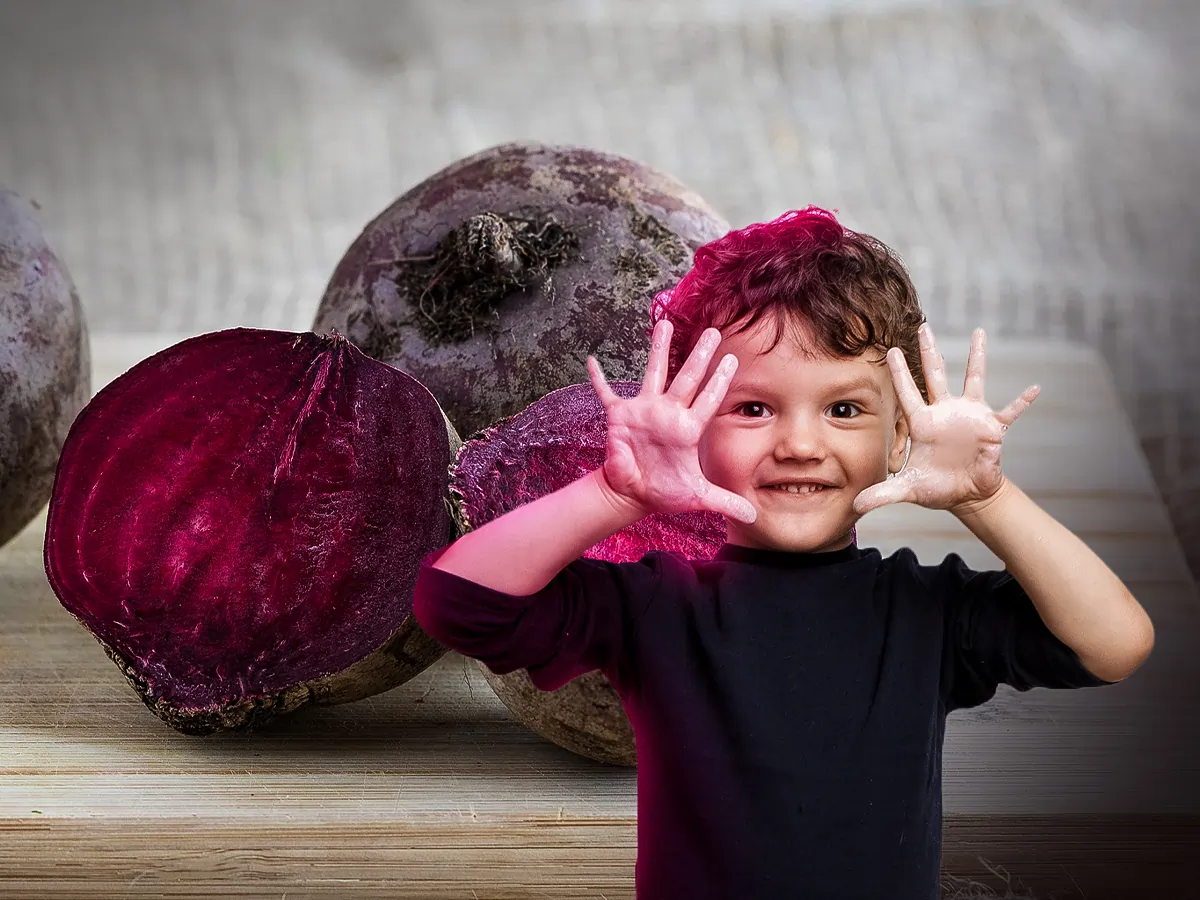Beetroot is a superfood with plenty of health benefits, especially for kids.
This dark red vegetable is rich in nutrients like fiber, potassium, and magnesium.
It also contains nitrates, which are converted into nitric oxide in the body, and has various health benefits.
Some health benefits of beetroot for kids include improving digestion and brain function, reducing cancer risk, and lowering blood pressure.
Beetroot can also significantly increase the number of red blood cells and hemoglobin concentration and treat anemia in children.
Keep reading on EasyToHealth 🦋 to learn more about the health benefits of beetroot for kids!
1. Improves Your Kid’s Digestion
Beetroots are excellent for your kid’s digestive system and act as a natural cleanser for the gut.
They are a powerhouse of nutrients and contain high levels of fiber, which helps to regulate bowel movements and prevent constipation.
Beetroots also contain important vitamins and minerals such as iron, magnesium, and potassium, which are essential for good gut health.
2. Increasing Brain Activity with Beetroot
Studies have shown that beetroot can improve cognitive function and increase brain activity.
Beetroot is high in nitrates, which helps increase blood flow in the body and brain.
This increased blood flow delivers more oxygen and nutrients to the brain, boosting cognitive function.
This can help enhance cognitive performance in children and help them concentrate better.
Furthermore, beetroot also contains folic acid, which improves the brain’s cognitive abilities.
3. Beetroot Can Reduce Cancer Risk
The active ingredient in beetroot, betacyanin, has been shown to help kill cancer cells and prevent them from spreading.
Beetroot contains polyphenols, flavonoids, dietary nitrates, and other valuable nutrients which could benefit cancer.
The abundant flavonoids and polyphenolic components in beetroot support its significant antioxidant and anti-inflammatory capacities.
Beetroot also contains betaine, which has been shown to reduce inflammation.
4. Beetroot Lowers Blood Pressure in Children
Beetroot is considered a complementary treatment for hypertension due to its high inorganic nitrate (NO3) content.
Nitrate can help reduce blood pressure by converting to nitric oxide in the body and dilating blood vessels
Studies have found that eating 400 grams of beetroot or drinking 500 ml of beetroot juice can cause a significant reduction in systolic and diastolic blood pressure at least 2-3 hours after consumption.
Beetroot is also a rich source of antioxidants;
Which are thought to help reduce inflammation and may play a role in preventing cardiovascular diseases.
5. Protective Effects of Beetroot Against Anemia
Beetroot extract is rich in folic acid, ascorbic acid, and iron.
Folic acid is vital for producing red blood cells, ascorbic acid helps maintain the integrity of capillaries, and iron is a crucial component of hemoglobin, which helps transport oxygen in the blood.
A study was conducted to determine the hematinic effect of beetroot extract on rats.
The results showed that consuming beetroot extract significantly increased the number of red blood cells (RBCs) and hemoglobin concentration.
The Bottom Line
Beetroot has probably not been in your diet until now, but you should know it has many health benefits for you and your children.
Digestive problems are one of the most common problems among children, and beetroot can improve digestion in children due to its high fiber content.
Nitrate in beetroot can increase blood flow to the brain, which increases blood supply to brain cells and improves brain function.
It may be interesting to you, but beetroot is known as an anti-cancer agent.
This is due to polyphenols, flavonoids, dietary nitrates, and other nutrients, which can be helpful against cancers.
Also, studies have shown that eating 400 grams of beetroot daily can reduce blood pressure and bring it to the standard level.
And finally, beetroot will positively affect children’s anemia;
Studies have shown that beetroot can increase the production of red blood cells and hemoglobin concentration.
So we suggest you add beetroot to your and your child’s diet.
Thank you for reading this article; ask us your questions in the comments section.

Leave a Reply